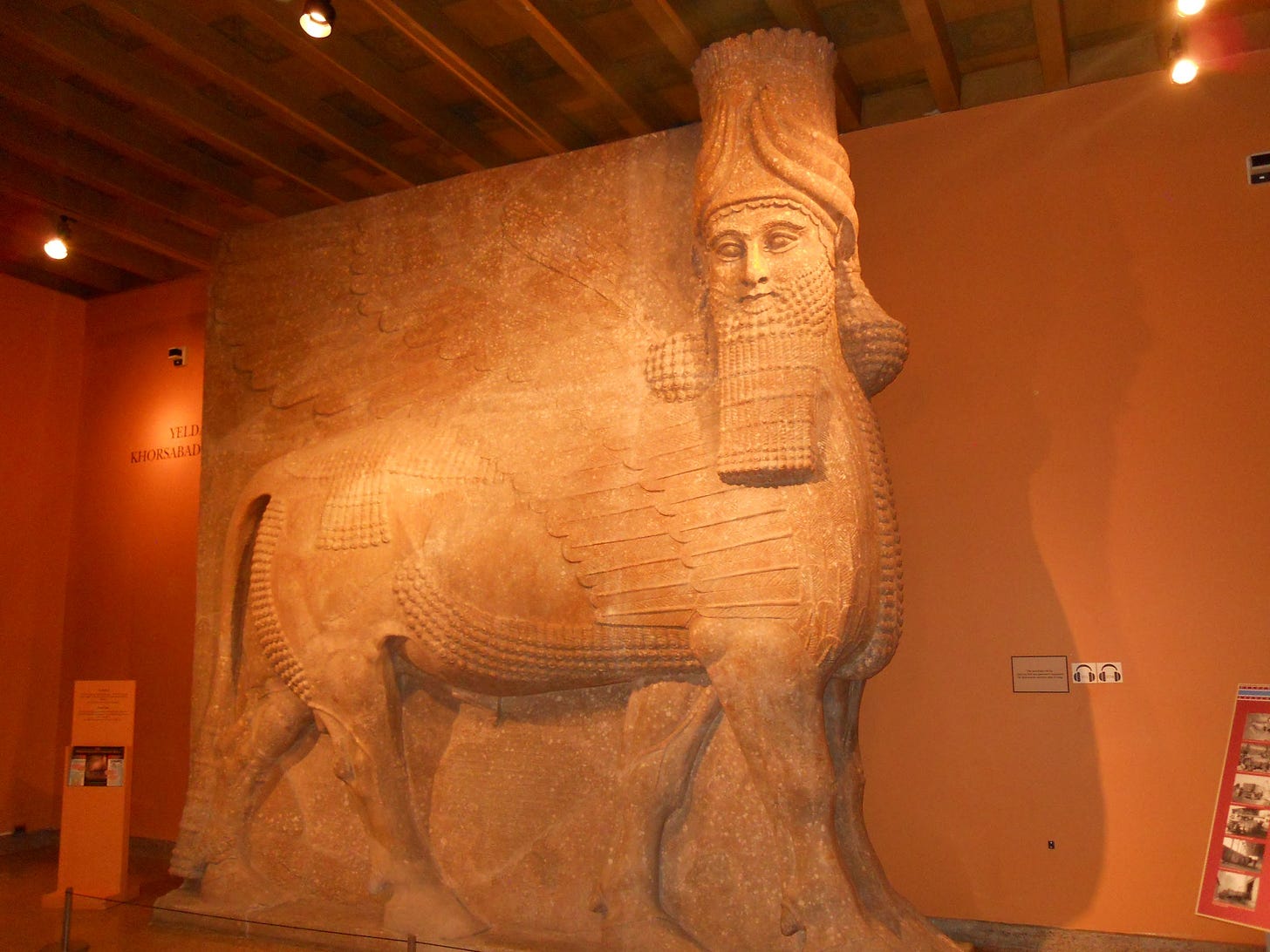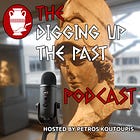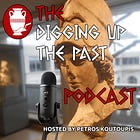Featured Episode - Special Feature - The Bible: From Eden to Babel
Issue 45

In This Episode
In the second installment of this special feature sub-series, we will continue to explore the world of the Bible. Join host, Petros Koutoupis, as he takes us on a journey to discover the location of Eden, identify the Nephilim, understand the fusing of two separate Flood stories to find parallels with Nimrod and the Tower of Babel to Neo-Assyrian sources and inspiration.
You can listen to this episode on:
Biblical Authorship Traditions
According to the research of Richard Elliott Friedman.
The Primeval History (i.e. Genesis) According to J: 2:4b-25; 3:1-24; 4:1-16; 4:17-24; 6:5-8; 7:1-5, 7, 12, 16b-20, 22-23; 8:2b-3a, 6, 8-12, 13b, 20-22; 9:18-27; 10:8-19, 21, 24-30; 11:1-9
The Primeval History (i.e. Genesis) According to P: 1:1-2:3; 6:9b-22; 7:8-11, 13-16a, 21, 24; 8:1-2a, 3b-5, 7, 13a, 14-19; 9:1-17; 10:1b-7, 20, 22-23, 31, 32
Glossary
Akkadian - An East Semitic language spoken by an early Mesopotamian civilization starting around 2500 BCE.
Ashurbanipal - King of the Neo-Assyrian Empire who reigned from 669 BCE to his death in 631 BCE.
Atra-hasis - An Assyro-Babylonian flood hero. Equivalent to Ut-napishtim written about in the Epic of Gilgamesh and the Sumerian Ziusudra.
Babylonian Exile - Also referred to as the Babylonian Captivity, is the period in Jewish history when a large number of Judeans from the Southern ancient Kingdom of Judah were transported to and held captives in Babylon (597 - 539 BCE).
BCE - Before the Common Era, the equivalent of B.C.
Bronze Age - Defines a historic period dated to approximately between 3300 BCE and 1200 BC. It is characterized by the use of bronze, the presence of writing in some areas, and other early features of urban civilization.
Canaan - The region that is the Levant and what is Israel and Syria today.
Cuneiform - A wedge-shaped logo-syllabic script used to write several languages of the Ancient Middle East.
Dead Sea Scrolls - Discovered in the caves of Qumran, to the north of the Dead Sea and dating from the 3rd century BCE to the 1st century CE, the Dead Sea Scrolls are considered to be the oldest surviving manuscripts of entire books later included in the biblical canons.
Deuteronomist (D) - An author or source identified in the Documentary Hypothesis and dated to around the 8th or 7th century BCE.
Documentary Hypothesis - A model used by Biblical Scholars to explain the origins and composition of the Pentateuch.
Elohist (E) - An author or source identified in the Documentary Hypothesis and dated to around the 9th century BCE.
George Smith - (26 March, 1840 – 19 August, 1876) An English Assyriologist who first discovered and translated the Epic of Gilgamesh.
Gilgamesh - An ancient Sumerian king and Mesopotamian hero. Many tales and an entire epic were written about him as early as the 3rd millennium BCE.
Late Bronze Age - A historical period defining the end of the Bronze Age in the Eastern Mediterranean that began at c. 1500 BCE and ended c. 1200 BCE.
Levant - The general geographical region of the Eastern Mediterranean and Western Asia, more centralized around modern-day Israel, Syria, Lebanon and Jordan.
Lugalbanda - Deified Sumerian king of Uruk and father of Gilgamesh.
Nineveh - An ancient Assyrian city of Upper Mesopotamia, located in the modern-day city of Mosul in northern Iraq.
Pentateuch - The first five books of the Old Testament which include the books of Genesis, Exodus, Leviticus, Number and Deuteronomy.
Priestly (P) - An author or source identified in the Documentary Hypothesis and dated to around the 5th century BCE.
Sumer - The earliest known civilization in the region of southern Mesopotamia (south-central Iraq).
Uruk - An ancient city of Sumer situated east of the present bed of the Euphrates River.
Ut-napishtim - An Assyro-Babylonian flood hero mentioned in the Epic of Gilgamesh.
Yahwist (J) - An author or source identified in the Documentary Hypothesis and dated to around the 10th century BCE.
Recommended Books
The Hidden Book in the Bible
By Richard Elliott Friedman
Renowned biblical sleuth and scholar Richard Elliot Friedman reveals the first work of prose literature in the world-a 3000-year-old epic hidden within the books of the Hebrew Bible. Written by a single, masterful author but obscured by ancient editors and lost for millennia, this brilliant epic of love, deception, war, and redemption is a compelling account of humankind's complex relationship with God. Friedman boldly restores this prose masterpiece-the very heart of the Bible-to the extraordinary form in which it was originally written.







